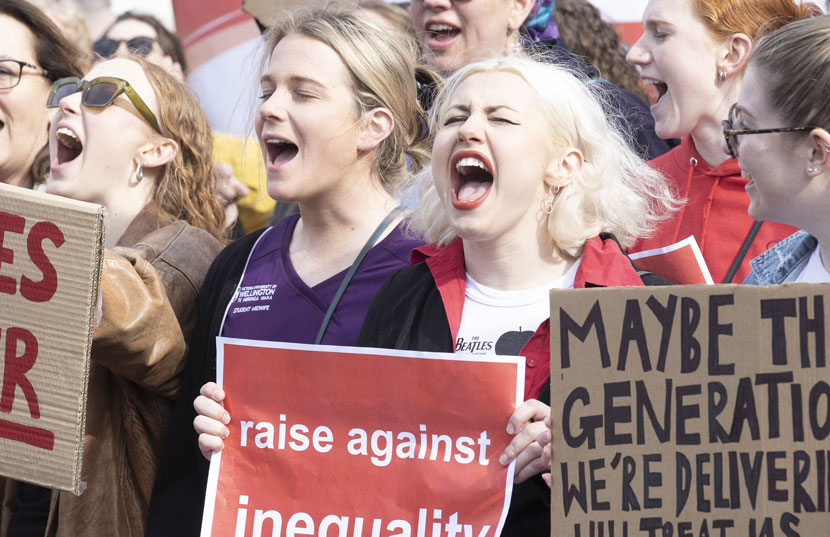
The New Zealand College of Midwives filed a gender discrimination claim in the High Court in 2015. Lead maternity carer midwives, who provide pregnancy, birth and post-natal care in the community, are self-employed and are paid a fee for deliveries, set by the Ministry of Health. The College of Midwives claimed the long hours worked by these midwives meant they were being paid less than the minimum wage. They earned less than male-dominated professions that required similar skills and responsibility, and the College of Midwives argued that this amounted to discrimination on the basis of gender.
This was the first gender discrimination case relating to pay brought under the New Zealand Bill of Rights Act 1990. Other pay equity claims had been dealt with under the Equal Pay Act 1972 or the Human Rights Act 1993.
This photo was taken at a protest of midwives and student midwives at Parliament in 2021, when they were still waiting for a resolution of their claim. Shown at the demonstration are student midwives, from left, Savy Docherty, Sarah Cook and Emma Hull.
A settlement was finally reached in 2023.
Te whakamahi i tēnei tūemi
This item has been provided for private study purposes (such as school projects, family and local history research) and any published reproduction (print or electronic) may infringe copyright law. It is the responsibility of the user of any material to obtain clearance from the copyright holder.







Tāpiritia te tākupu hou